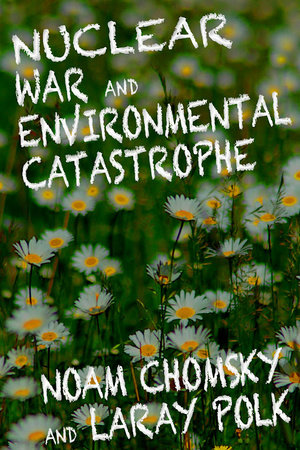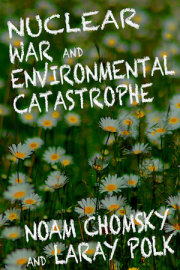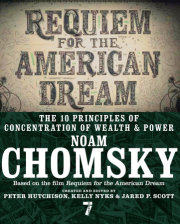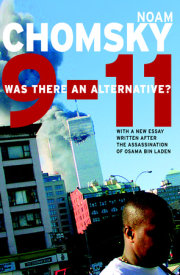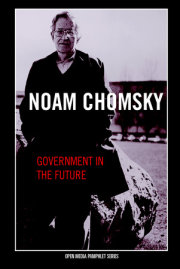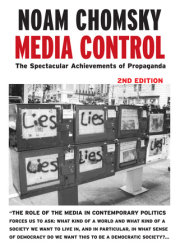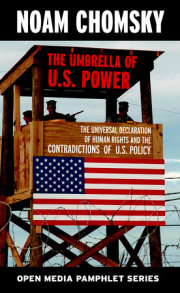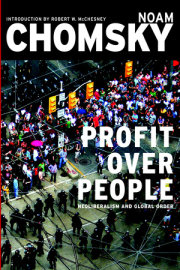Preface
If humans choose to work to minimize the existential threats of our time, perhaps the most improbable aspect of remedy is that we will accept modalities based on collaboration and creative adaptation, rather than perpetual combat and domination. It is a stark fact that present and future economies are predicated on a finite energy resource: carbon-based fuels.2 Consensual science on climate change presents another fact: we may only have a few years to make adjustments in the collective carbon load before we are faced with irreversible consequences. As Christian Parenti in
Tropic of Chaos perceptively and correctly points out:
“[E]ven if all greenhouse gas emissions stopped immediately—that is, if the world economy collapsed today, and not a single light bulb was switched on nor a single gasoline-powered motor started ever again—there is already enough carbon dioxide in the atmosphere to cause
significant warming and disruptive climate change, and with that considerably more poverty, violence, social dislocation, forced migration, and political upheaval. Thus we must find humane and just means of adaptation, or we face barbaric prospects.”
Seen in this light, to live collaboratively and creatively is less a radical proposal than a pragmatic one, if we, future generations, and the biosphere are to survive nuclear war and environmental catastrophe.
Laray Polk Dallas, Texas September 2012
1. Environmental Catastrophe
Laray Polk: When we began this conversation in 2010, our starting point was a statement you had recently made in the press: “There are two problems for our species’ survival— nuclear war and environmental catastrophe.” What is meant by “environmental catastrophe”? Noam Chomsky: Actually, quite a lot of things. The major one is anthropogenic global warming—human contribution to global warming, greenhouse gases, others—but that’s only a part of it. There are other sources of what’s called pollution—the destruction of the environment—that are quite serious: erosion, the elimination of agricultural land, and turning agricultural land into biofuel, which has had a severe effect on hunger. It’s not just an environmental problem; it’s a human problem. Building dams and cutting down the Amazon forests has ecological consequences—there are thousands of things and the problems are getting a lot worse.
For one reason, because of the role of the United States. I mean, nobody’s got a wonderful role in this, but as long as the United States is dragging down the entire world, which is what it’s doing now, nothing significant is going to happen on these issues. The US has to at least be seriously taking part and should be well in the lead. It’s kind of ironic; if you look at this hemisphere, the country that is well in the lead in trying to do something serious about the environment is the poorest country in South America, Bolivia. They recently passed laws granting rights to nature.1 It comes out of the indigenous traditions, largely—the indigenous majority, they’ve got the government advocating on their behalf. Sophisticated Westerners can laugh at that, but Bolivia is going to have the last laugh.
Anyway, they’re doing something. In the global system, they’re in the lead, along with indigenous communities in Ecuador. Then there’s the richest country—not only in the hemisphere, but in world history—the richest, most powerful country, which is not only doing nothing, but is going backward. Congress is now dismantling some of the legislation and institutions put into operation by our last liberal president, Richard Nixon, which is an indication of where we are. In addition, there’s a great enthusiasm about tapping new sources of fossil fuels and doing it in ways which are extremely environmentally destructive: water and other resources are destroyed through fracking and deep-sea drilling. Anywhere you can find anything that you can use to destroy the environment, they’re going after it with great enthusiasm. It’s like issuing a death sentence on the species.
And what makes it worse is that a lot of it is being done out of principle—that it’s not problematic, that it’s what we ought to be doing. In a sense, the same is true of nuclear weapons. They’re justified on the grounds that we need them for defense—we don’t need them for defense—but the argument for moving forward toward disaster is a conscious, explicit argument that is widely believed. With regard to the environment and the United States, there is also quite a substantial propaganda campaign, funded by the major business organizations, which are quite frank about it. The US Chamber of Commerce and others are trying to convince people that it’s not our problem, or that it’s not even real.
If you look at the latest Republican primary campaign, virtually every participant simply denies climate change. One candidate, Jon Huntsman, said he thinks it is real, but he was so far out of the running, it didn’t matter.5 Michele Bachmann said something to the effect, “Well, it could be real, but if it is, it’s God’s punishment for allowing gay marriage.” Whatever the world thinks, they can’t do much if this is going on in the United States.
In Congress, among the latest cohort of Republican House representatives from 2010, almost all are global-warming deniers and are acting to cut back legislation to block anything meaningful, and to roll back the little that exists. I mean, it’s surreal. If someone were watching this from Mars, they wouldn’t believe what was happening on Earth.
Hugo Chávez gave a speech at the United Nations at one of the major General Assembly meetings, and, of course, the press was full of ridicule and absurdities and so on. They didn’t mention the talk he gave. You can find the talk, I’m sure, on the Internet, in which he said that producers and consumers are going to have to get together and find ways to reduce reliance on hydrocarbons and fossil fuels.7 Of course, Venezuela is a major oil producer. In fact, practically the whole economy depends upon it; they’re a lot more reliant on oil than Texas is. So it can be done. We don’t have to be lunatics who are willing to sacrifice our grandchildren so that we can have a little more profit.
Actually, the whole Texas system is interesting. I’m sure you know the history, but back around 1958, the Eisenhower administration introduced an arrangement whereby the United States would rely on Texas oil: exhaust our domestic oil resources instead of using much cheaper and more accessible Saudi oil resources, for the benefit of Texas oil producers. And I think for the next fourteen years, the country relied primarily on Texas oil. Meaning, exhaust domestic resources and later on dig holes in the ground and pour oil back into them for strategic reserve. This was pretty sharply criticized even from a straight security point of view. An MIT faculty member, M. A. Adelman, an economist who is an oil specialist, testified before Congress on this, but it didn’t matter. Profits for Texas oil producers overwhelm even elementary security considerations like reliance on foreign oil.
That’s what it means to have a country that’s business-run, nothing else matters. It is the same reason we can’t have a health system like every other industrial country. The people who matter, the financial institutions, won’t allow it so it’s off the agenda.
The Koch brothers give large amounts of money to universities. In exchange they get a hand in choosing faculty.9 How corrosive is this practice? Such practices would be extremely harmful, virtually by definition. If universities (journals, researchers) are to serve their public function in a free and democratic society, the institutions and the faculty must be scrupulous in rejecting outside pressures, particularly from funders, whether these are state or private. Funding should be flatly rejected if it comes with conditions such as those you describe.
Nine out of twelve Republicans on the House Energy and Commerce Committee signed an Americans for Prosperity pledge to oppose regulation of greenhouse gases.10 To what degree are campaign contributions and pledges like this one stifling the political process on environmental issues in the US? And to what degree does US energy policy impact other countries? The US is the richest and most powerful state in the world, by a large measure. Its policies on anything impact others. Energy policies in particular have an enormous impact, also on future generations, for reasons too well known to spell out again in detail here. The Republican pledge is simply another indication of abandonment of any pretense of participating in the political system as an authentic parliamentary party, instead taking on the role of lockstep uniformity in service to wealth and power. Dismantling the (much too weak) regulatory apparatus is simply a way of informing future generations that we care nothing about their fate as long as we and those we serve profit now. There is no doubt that campaign contributions have a significant effect on party programs and eventual government decisions, hence undermining democracy, if we understand democracy to be a system in which government decisions reflect the will of the public, not the power of those who can purchase outcomes with substantial contributions.
What are the factors that have led to conservative think tanks, largely funded by industry interests such as the Kochs and ExxonMobil, being able to hold sway over consensual science in terms of public opinion?11 Even if the science is hard to comprehend for most nonscientists, isn’t it evident what industries that fund climate-change skepticism stand to gain? It is entirely evident. Major industries and lobbying organizations (US Chamber of Commerce, etc.) have been quite frank about their efforts to sway public opinion to question the overwhelming scientific consensus on the severe threat of anthropogenic global warming. There is no novelty in this. Industries that produce what they know to be lethal products (lead, tobacco, etc.) were able to use their wealth and power for long periods to continue their murderous activities unhampered. The effects have been dire, and continue to be, but they are even more ominous in the case of the intensive efforts to undermine steps that might preserve the possibility of a decent life for future generations—with effects already evident, but only a foretaste of much worse that is all too likely to come.
Is the fossil-fuel industry monolithic?
Copyright © 2013 by Noam Chomsky and Laray Polk. All rights reserved. No part of this excerpt may be reproduced or reprinted without permission in writing from the publisher.

